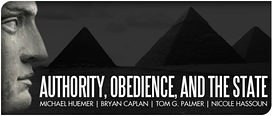My main complaint about The Problem of Political Authority is that it’s not long enough. Indeed, the book should have three parts, not two. Part I powerfully critiques the morality of state authority. Part II counters the consequentialist defense of the existence of the state by arguing that the expected consequences of anarcho-capitalism are, at minimum, tolerable. This is to say the least an abrupt transition. For most readers, small-government libertarianism is already a proposition with intolerable consequences. Why not address their numerous concerns before trying to turn them into anarchists?
My proposal: Huemer’s Part II should be relabeled Part III. The new Part II should be a chapter-by-chapter critique of mainstream consequentialist arguments for government intervention. Some obvious chapters to include: Economic efficiency, economic growth, poverty, externalities, discrimination, imperfect information, and paternalism. In each case, Huemer could have combined (a) a fair-minded review of mainstream social science with (b) the moral principle that coercion is only morally justified if coercion is highly likely to lead to much better consequences. By the end of Part II, skeptical readers would be psychologically prepared to at least consider the truly radical thesis of Part III.
To see what I have in mind, check out Huemer’s outstanding essays on the ethics of immigration restrictions, gun control, and drug prohibition. Moral philosophy and social science have rarely been so seamlessly merged. Perhaps I’m overly greedy to demand six extra chapters of comparable quality. But if The Problem of Political Authority ever has a second edition, six extra chapters is just what I’m hoping for.

